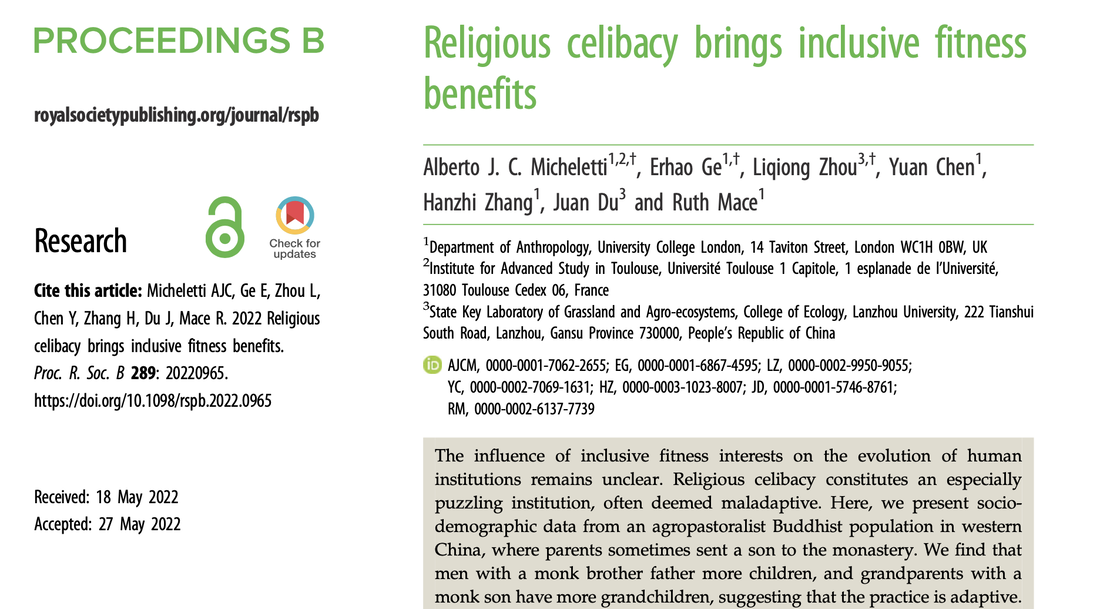New paper in Proceedings B with colleagues at University College London, UK, and Lanzhou University, China. Read it here.
Institutions are key in human societies, but their evolution remains unclear: do people involved in them act in their own interest or do they conform to group behaviour? Religious celibacy constitutes an especially puzzling institution, long deemed to be maladaptive. Here we show that, in an agropastoralist population in western China, men whose brother is a Buddhist monk have more children and men with a monk son have more grandchildren, suggesting that the practice is adaptive. We develop a mathematical model showing the evolutionary rationale behind this result. Reproductive interests shape the adoption of this institution – and likely many others.
Institutions are key in human societies, but their evolution remains unclear: do people involved in them act in their own interest or do they conform to group behaviour? Religious celibacy constitutes an especially puzzling institution, long deemed to be maladaptive. Here we show that, in an agropastoralist population in western China, men whose brother is a Buddhist monk have more children and men with a monk son have more grandchildren, suggesting that the practice is adaptive. We develop a mathematical model showing the evolutionary rationale behind this result. Reproductive interests shape the adoption of this institution – and likely many others.

